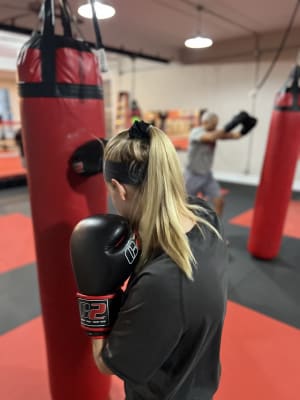
Training in combat sports demands a balanced approach to physical conditioning, technical skill, and mental resilience. Here are some key tips to help you get the most out of your training:
1. Focus on Fundamentals
Master the basics—stance, footwork, and core techniques—before moving on to advanced skills. A solid foundation is essential for long-term success. Flying knees, kart wheel kicks, spinning elbows are all cool but can be detrimental if not done properly, these things only work when built on sound fundamentals!
2. Condition Your Body
Incorporate a mix of cardio, strength training, and mobility work to ensure you're physically prepared for the demands of combat sports. Consistent conditioning will improve your endurance, power, and flexibility. You should be training the 3 energy systems, also, REST, not just take an afternoon off you need proper rest, sleep and recovery! I heard a quote once that said “Don’t workout if you’re too tough to rest!”
3. Practice Repetition
Drill your techniques regularly to build muscle memory. Repetition ensures that your moves become second nature during a fight, improving both your confidence and performance. You know that old saying “It takes 10,000 reps to get it right”? That’s kinda true, it actually takes 100,000 reps to get it right so you can practice it 10,000 times correctly. So be careful how you drill cuz you might get good at it! Good or bad!
4. Spar Smartly
Use sparring sessions to focus on specific aspects of your game, like defense or footwork. Treat sparring as a learning tool, not just a test of toughness. Sparring and rolling ARE NOT FIGHTING!
5. Prioritize Recovery
Combat sports are tough on the body, so make recovery a priority. Get enough sleep, stay hydrated, and incorporate stretching or active recovery exercises to keep your body in top shape like I mentioned above
6. Develop Mental Toughness
Combat sports are as mental as they are physical. Build resilience by pushing through tough training sessions, staying positive, and using visualization and meditation to stay focused. There is beauty in doing stuff you don’t want to do and I’ve found my greatest training sessions were on the other side of not wanting to train, I just made it there and at the end was well worth it!
7. Study the Sport
Learn from others by watching fights and analyzing different techniques and strategies. Apply these insights to improve your own game. Model success!
8. Listen to Your Body
Push hard, but know when to rest. Overtraining can lead to injuries, so pay attention to your body’s signals and give yourself time to recover.
9. Set Goals
Set specific, achievable goals to keep yourself motivated and on track. Whether it's improving a technique or preparing for a competition, clear goals will guide your progress.
Training in combat sports is a challenging but rewarding journey. By focusing on these essentials, you’ll be better equipped to excel and enjoy the process along the way!
Progress not perfection!


